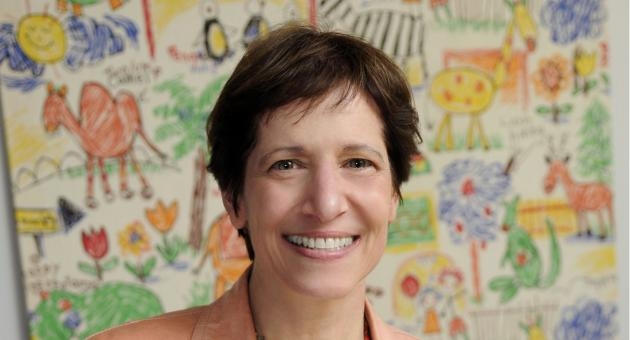Temple psychology professor stages block party to highlight importance of playtime

Temple Professor of Psychology Kathy Hirsh-Pasek is holding a play date this Sunday, and inviting several hundred of New York City’s children.
As co-founder of Play for Tomorrow, a consortium of educators, business leaders, authors and researchers, Hirsh-Pasek has helped organize the Ultimate Block Party on Oct. 3.
Formed in 2009, Play for Tomorrow is dedicated to shining a light on the vital role of playtime in children’s development and education. The Ultimate Block Party is the first of several events in a national campaign intended to promote that message.
“The workforce of 2040 is in our schools today and we must ensure that, as a nation, we are well equipped to thrive in our global economy,” said Hirsh-Pasek. “We are excited to announce our first annual Ultimate Block Party and to show families, educators, business innovators and politicians that playing is indeed learning.”
The event will transform Central Park's Naumberg Bandshell area into a playground with 25 activities for families with kids 12 and under to experience. Events will include mini-master classes with leading architects, scientists, engineers, musicians, artists, inventors and business leaders from around the city, who will share their ideas for play-based learning. Children will take part in games of all kinds, including childhood staples such as hide and seek and Simon says; practical activities like building a robot or putting together a LEGO set; and imaginative play.
Hirsh-Pasek, a veteran of nearly 30 years of teaching who has written 11 books and been published in more than 100 publications, found inspiration for the Ultimate Block Party when her research on the development of language and literacy continuously indicated that current teaching trends were heading in the wrong direction.
She cites recent studies that show that over the past two decades children have lost an average of eight hours of playtime per week, and more than 30,000 US schools have eliminated recess in favor of spending more time on math, literacy and test prep. This decrease in play time, coupled with an increase in sedentary time in front of computers, is contributing to childhood obesity and negatively impacting the development of children’s social skills, she says.
Hirsh-Pasek and her fellow researchers from Play for Tomorrow argue that children need both guided and free play if they are to learn to make their own choices. Research from the American Academy of Pediatrics supports this theory. Undirected play time, says the academy, helps children learn to cope with real-world issues such as sharing, working in groups, negotiating, conflict resolution and self-advocacy. It also helps develop confidence and resiliency in the face of challenges.
“The scientists have aligned,” said Hirsh-Pasek. “Now we need to come together to put that knowledge in the hands of parents, policymakers and educators so that they can use it to build the skills needed for the 21st century.”